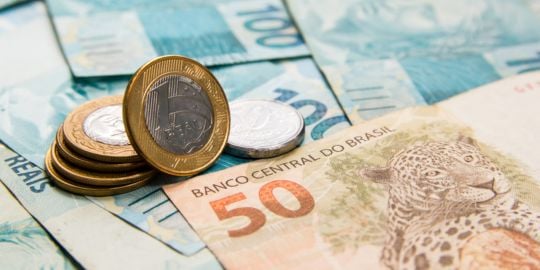Hello everyone,
During your expatriation in Brazil, you might have been made aware of interesting investment schemes (local or international). Whether one wants to make money grow, protect oneself or prepare for retirement, investment is always an attractive option. It is, however, never free of risk. Would you, therefore, like to share some practical information for other expats and expats to be?
Is the Brazilian economy open to foreign investment? Do local authorities encourage investment (through formalities, tax etc.)?
What are the promising sectors to invest and do business in Brazil?
Who do you turn to for information before investing your money? (organisation, professional, lawyer, consultant)
According to the sectors of activity and the projects, what budget should be foreseen for an investment in Brazil?
What do you think are the pitfalls to avoid and what advice would you give someone who wants to invest?
Thanks in advance for your feedback,
Diksha
Investing in Brazil
Most of my income is in dollars. And I wouldn´t exchange it to another currency to buy shares in a foreign exchange denominated in the local currency. Lots of things to consider like Forex fluctuations and the tax implications on both hemispheres.
So to make things simpler, I invest in the country where that dollar came from. I usually pick my individual stocks but lately I´ve been investing in ETFs for safety (medical instruments and biotechnology) and technology itself. They do have dividends which I enjoy spending but I always reinvest some.
robal
My advice echo's Robal.
You should be aware of your country's situation and stay invested in said country with a trusted attorney, advisors and parties.
Regulation's are somewhat unknown to many here. In US many funds are insured and regulated.
Know your tax situation. I would not exchange outside where your funds are.
You have resources to see your risk potential and can adjust at anytime.
Here's another vote for leaving your investments in the country you understand.
The only investment dollars that I transferred to Brazil were the ones used to buy our home -- for cash, because I didn't want to get involved in Brazilian real estate financing, and understanding upfront that there will probably be an exchange loss at the end of the road. We had a five year time horizon, found a perfect property (for us, naturally) with a motivated seller and pristine documentation, and the cash flow benefits (in reais) to owning compared to renting were very desirable. This was a strictly one-off transaction: my principal investments are in the US, and there they'll stay.
Thanks to the strengthening of the dollar and the positive cash flow, we do end up every month with reais to invest. So far, we're putting them into a very safe investment: Brasilprev through Banco do Brasil, a tax-advantaged savings account that functions rather like an IRA in the US. Our objective is to build up a nest egg in reais to invest, and we're researching how markets function here. By the time my husband graduates from law school, we'll have a plan for investing those funds, and a portion of his earnings, which will also be in reais.
My investment strategy has always been sane but rather aggressive, so I'm trying to learn what that means here. We'll only be investing funds that we can afford to lose, so there will be room to make some mistakes, as long as they're not too many and too awful!
The exchange is currently 4.3 so it is tempting to throw money into an account. Anything is taxable if it earns interest. It is tempting to buy an apt and rent it out and have the real estate agency manage it.
As long as you´re discplined to report your account through FINCEN anytime even for 1 day that you exceeded 10,000USD, then you´re fine. EVEN if you´re below the threshold of filing taxes. The fine is $10,000 or whatever is greater. Also remember that Brazil is active in "swap cambial" so they can decide to intervene anytime and exchange their dollar reserves which is still at their comfortable level. Trump hasn´t been very happy since Brazil has been letting their reais devalue to pay their internal debts. In all, real estate investment is more valuable and of course you can rent it out if you have the money floating in a savings acct in the US. A one time purchase in cash at the height of the dollar against the reais is indeed the strategy!
robal
Any tips for which bank to use to transfer funds?
The only bank in the US that is in BR now is Santander?
There is Santander, Banco do Brasil and a couple more, but you will find that they tell you they are separate from Brasil.
You can discuss with them. Any bank which you have an account can transfer to BR, there will be fees in the US and fees in Brazil. Some credit union have smaller fees.
I came when HSBC was here (now Bradesco) and developed a relationship. Bradesco was like starting again, but all they needed was proof of residence. US bank statement, CPF and CRNM. Now they know me and not asking each year for the information.
I've used Xoom and Trasnferwise in the past to send money to someone. I am looking into buying a small apt and like to know the best way to get the funds there.
I use Banco do Brasil. As Tex said, once your relationship is in place with the bank, it's usually smooth sailing.
jc1234 wrote:I've used Xoom and Trasnferwise in the past to send money to someone. I am looking into buying a small apt and like to know the best way to get the funds there.
Wire the funds direct to the seller.









